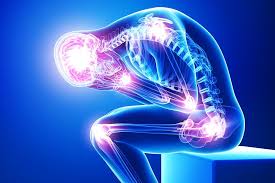
Acetaminophen. Acetaminophen is usually recommended first for mild to moderate pain. it might be taken for pain due to a skin injury, headache, or conditions.
Chronic Pain: Medication Decisions
Chronic pain is a persistent condition that lasts for months or even years, significantly affecting quality of life. Managing chronic pain often requires a comprehensive approach that includes medication. Making the right decisions about medications involves understanding the types available, their benefits, potential risks, and how they fit into a broader pain management plan.
Types of Medications for Chronic Pain
- Non-Opioid Medications
- Acetaminophen (Tylenol): Used for mild to moderate pain without inflammation. It’s gentle on the stomach but should be monitored for liver health.
- Nonsteroidal Anti-Inflammatory Drugs (NSAIDs): Includes ibuprofen (Advil) and naproxen (Aleve). Effective for pain with inflammation, such as arthritis or back pain.
- Opioids
- Examples: Morphine, oxycodone, hydrocodone.
- Uses: Prescribed for moderate to severe pain when other treatments fail.
- Considerations: High risk of dependence, so they are typically used under strict medical supervision.
- Antidepressants
- Examples: Amitriptyline, duloxetine (Cymbalta).
- Uses: Effective for neuropathic pain and conditions like fibromyalgia.
- Benefits: Can improve sleep and mood, which often co-exist with chronic pain.
- Anticonvulsants
- Examples: Gabapentin (Neurontin), pregabalin (Lyrica).
- Uses: Particularly effective for nerve pain conditions like diabetic neuropathy or shingles.
- Precautions: Can cause drowsiness and dizziness in some individuals.
- Topical Medications
- Examples: Lidocaine patches, capsaicin cream.
- Uses: Localized pain relief for conditions like arthritis or neuropathy.
- Benefits: Minimal systemic side effects.
- Muscle Relaxants
- Examples: Cyclobenzaprine, methocarbamol.
- Uses: Helps with muscle spasms and associated pain.
- Precautions: Should not be used long-term due to potential side effects like drowsiness.
- Corticosteroids
- Examples: Prednisone, methylprednisolone.
- Uses: Reduces inflammation in conditions like arthritis and autoimmune diseases.
- Precautions: Long-term use may lead to side effects like weight gain and bone loss.
- Medical Cannabis
- Uses: Pain relief for neuropathic pain or cancer-related pain.
- Considerations: Legal status and effectiveness vary by region and individual cases.
Factors to Consider in Medication Decisions
- Nature of Pain
- Nerve pain often responds better to anticonvulsants or antidepressants.
- Inflammatory pain may require NSAIDs or corticosteroids.
- Patient’s Health History
- Liver or kidney conditions may limit the use of certain drugs like NSAIDs or acetaminophen.
- History of addiction or substance abuse can influence the decision to use opioids.
- Potential Side Effects
- Evaluate the risks of long-term use, such as dependency, gastrointestinal issues, or hormonal changes.
- Combination Therapy
- Sometimes, a combination of medications (e.g., a low-dose antidepressant with an NSAID) provides better relief with fewer side effects.
- Patient Preferences
- Some patients may prefer non-drug approaches or specific medications based on their experiences.
Monitoring and Adjustments
- Regular Check-Ins: Periodic consultations with healthcare providers to assess effectiveness and side effects.
- Adjust Doses: Start with the lowest effective dose and adjust as needed.
- Tapering Off: Gradual discontinuation of certain medications like opioids or corticosteroids to prevent withdrawal or adverse effects.
Non-Medication Strategies
Medications are often part of a broader treatment plan that may include:
- Physical therapy.
- Cognitive-behavioral therapy (CBT).
- Lifestyle changes, like exercise and improved sleep hygiene.
- Interventional procedures, such as nerve blocks or spinal injections.
When to Seek Medical Advice
- Uncontrolled pain despite medication.
- Side effects impacting daily life.
- Concerns about dependency or tolerance to pain medication.
Effective chronic pain management often requires collaboration between the patient and a multidisciplinary medical team to ensure the best outcomes tailored to individual needs.